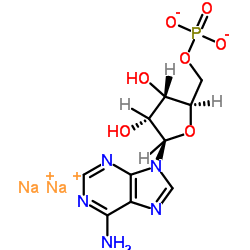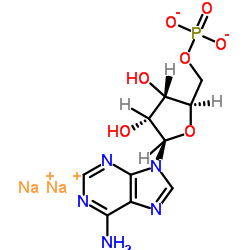| 结构式 | 名称/CAS号 | 全部文献 |
|---|---|---|
 |
腺苷-5'-磷酸
CAS:18422-05-4 |
|
 |
腺苷-5'-单磷酸钠盐
CAS:149022-20-8 |
|
 |
腺苷酸二钠盐
CAS:4578-31-8 |